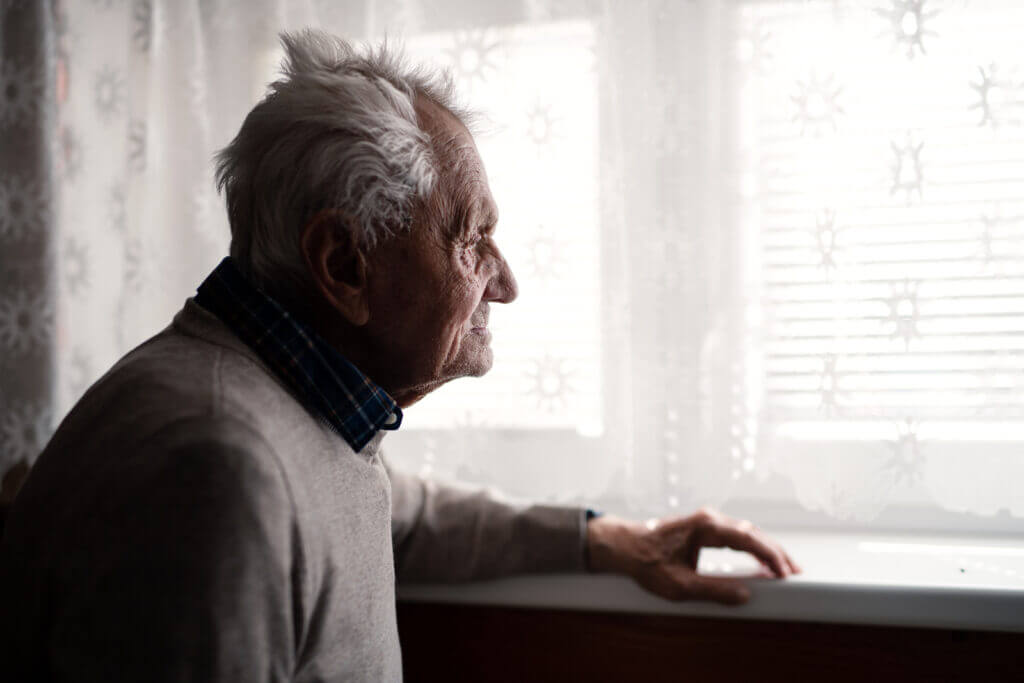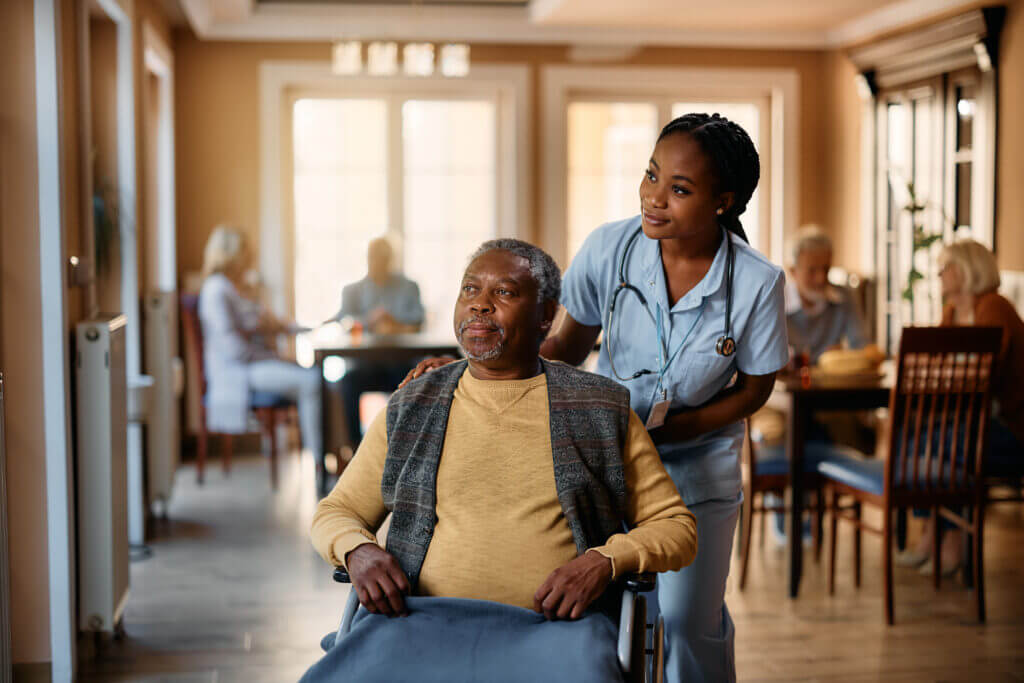Georgia Nursing Home Abuse and Assisted Living Facilities Laws

What Types of Abuse Occur in Nursing Homes?
There are several common types of nursing home abuse cases.
They include:
- Professional negligence or negligence in general
- Violation of the Georgia Bill of Rights for Residents of Long-Term Care Facilities
- Evidence of violations of the Standard of Care Act
You expect your loved one to be treated well when you choose a nursing home or assisted living facility.
There are strict laws that provide specific protections for individuals living in these facilities.
Sadly, abuse, neglect, and mistreatment occur too frequently.
Today our Georgia nursing home abuse lawyers explore these laws and protections. For immediate assistance, please call (706) 354-4000 or fill out our online form today.
Submit this short form to find out whether you have a valid claim against a Georgia Nursing Home:
Professional Negligence or Negligence in General
This cause of action arises from the duty that professional staff at nursing homes owe it to the residents to act in accordance with the standard of care ordinarily exercised by skilled nursing facilities or long-term care facilities under like conditions and similar surrounding circumstances. O.C.G.A. § 51-1-27.
Examples include:
- Not protecting residents from falls
- Not following residents’ care plans
- Failing to follow toileting plans for residents
- Failing to utilize safety measures such as beds, alarms, wheelchair arms, etc.
- Inadequately trained staff or understaffing
- Failing to maintain records properly
- Failing to prevent skin breakdown
Violation of the Georgia Bill of Rights for Residents of Long-Term Care Facilities
This cause of action arises from the rights that long-term residents enjoy under the Georgia act “Thurman v. Pruitt Corp.,” 212 Ga. App. 766, 422, S.E. 2d 844 (1994).
These rights include:
- Reasonable care and skill
- Respect for dignity and privacy
- Compliance with the applicable laws and regulations
This Bill of Rights was created to protect residents from abuse and neglect.
Examples include:
- Failing to plan for falls
- Failing to follow a resident’s care plan violates a resident’s dignity
Dignity is defined as a resident’s “self-worth.” 42 U.S.C. § 483.15(a). A nursing home has a duty to maintain and enhance an elderly resident’s dignity and self-esteem.
OBRA Violations are Evidence of Violations of the Standard of Care
OBRA applies to skilled nursing facilities that accept Medicare and Medicaid. Employees of these facilities are required to follow the regulations set forth by Medicare and Medicaid under this act.
These rights include:
- Dignified self-existence
- Self-determination
- Quality of life
- Dignity
- A comprehensive and accurate resident assessment
- Quality of care
No matter a patient’s respective medical condition, these regulations must be followed. Under O.C.G.A. § 31-7-3.2(i), a court in any civil action shall take judicial notice of these regulations and admit them into evidence if found to be relevant to the harm alleged in the complaint.
Some examples are:
- Failing to provide patients with a safe living environment
- Failing to adequately supervise residents
- Failing to prevent accidents
Georgia Assisted Living Facilities: What’s the Law?
There are some common protections under Georgia law when it comes to assisted living facilities including the Department of Community Health Rules and Regulations and the Official Code of Georgia Statutes.
Department of Community Health Rules and Regulations
The Department of Community Health Rules and Regulations establishes the minimum standards for the operation of homes, which provide residential services to citizens of the State of Georgia.
These Georgia nursing home regulations lay out the necessary requirements for staffing, inspections, training, and safety standards for assisted living facilities. They also include rules regarding residents’ care plans, medications, nutrition, and procedures for documenting changes in condition. Responding to changes in condition play an important role in many nursing homes and assisted living cases as these procedures if implemented effectively, can help prevent deadly falls and other injuries.
“DCH Rules and Regulations for Assisted Living Communities,” Chapter 111-8-62, Chapter 11-8-63
Official Code of Georgia Statutes
In addition to claims of negligence, professional negligence, and violations of OBRA (Omnibus Budget Reconciliation Act) and DCH (Department of Community Health) rules, the Official Code of Georgia provides several avenues for asserting claims in assisted living suits. Specifically, these statutes are intended to hold assisted living facilities accountable for respecting the dignity and privacy of residents, providing reasonable care, skills, and services; and complying with applicable laws and regulations.
Under these statutes, essential services including social, medical, psychiatric, or legal services necessary to safeguard these elderly residents are required to be provided. The statutes are intended to protect residents from neglect and abuse, while also creating a safe environment.
These statutes allow residents and their families to recover for failures, violations, and injuries by the professional staff of these assisted living facilities, while also granting the Department of Community Health with rule-making authority in this area.
- O.C.G.A. § 31-8-131;
- O.C.G.A. § 31-8-133;
- O.C.G.A. § 30-5-1-10;
- O.C.G.A. § 30-8-3;
- O.C.G.A. § 31-7-3.2;
- O.C.G.A. § 31-21-1.
What is OBRA?
The Omnibus Budget Reconciliation Act of 1987 began when in 1986, an expert panel was formed – the Committee on Nursing Home Regulation – to recommend reformations to nursing home quality of care.
The committee found the following needs:
- Stronger federal role in improving quality
- Reformation of performance standards, inspection processes, and remedies to improve services
- Better training
- Improved assessment of residents and their needs
- Revised regulatory process

Congress received these recommendations with one major conclusion: Increased federal regulation was necessary to improve the quality of patient care and quality of life in nursing homes.
For four years, Congress held hearings on the long-term care industry and those hearings consistently revealed that both the quality of care and quality of life in many nursing homes were less than adequate. Many nursing homes repeatedly ignored federal regulations and subjected elderly residents to unfavorable conditions. They also staffed facilities with poorly trained aids who were not qualified to perform nursing care duties. Further, nursing homes routinely violated one or more basic individual rights conferred upon all Americans by federal statutes and the Constitution. These findings led to the passage of the Federal Nursing Home Reform Act, or OBRA.
“Federal Nursing Home Reform Act from the OBRA ’87 Summary,” Turnham, Hollis
“Improving the Quality of Care in Nursing Homes,” Committee on Nursing Home Regulation
“Nursing Home Reform: Its Legislative History and Economic Impact Upon Nursing Homes,” Emerzian, A.D. Joseph and Stampp, Timothy
Legislative History on Georgia’s Bill of Rights for Residents of Long-Term Care Facilities
This Bill of Rights emerged from a growing national trend that there should be a declaration of a patient’s Bill of Rights by statute in each state. The General Assembly recognized that residents of long-term care facilities are generally isolated from the community and lack the means to fully assert their rights as citizens.
Therefore, in 1981 they adopted the GBOR for Residents of Long-Term Care Facilities to preserve the dignity and personal integrity of these residents by safeguarding against encroachments on the residents and their needs.
O.C.G.A. § 31-8-101 – Legislative Intent
“Construction and Application of State Patient Bill of Rights Statutes,” ALR5th, 2001
Things to Consider
- OBRA and the Bill of Rights are intended to protect residents of nursing homes
- Violations of OBRA and the Bill of Rights leads to resident abuse and neglect
For prompt help, kindly contact us at (706) 354-4000 or complete our online form right away.
